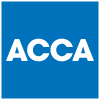Employees who work from home due to measures to control the coronavirus pandemic are covered by home-working expenses rules, HMRC has confirmed. Many of us are now working from home as offices are closed during the COVID-19 pandemic. This can mean additional expenditure for both employers and employees.
What tax reliefs are available?
Employer Reimbursed costs
Employers can make payments to employees to cover the reasonable costs of working from home.
Payments of fixed amounts of £6 per week or £26 per month can be paid tax free.
In order to qualify the employee must work at home regularly as part of a homeworking arrangement.
HMRC have confirmed that during the COVID-19 pandemic employees working from home because their office is closed or if they are following advice to self-isolate will meet these requirements.
Other working from home considerations
Alternatively the employer can reimburse the actual increased costs of working from home but this can be onerous to calculate and to evidence.
If an employee does not have internet access and needs this to work from home the employer can reimburse the costs of the internet connection tax free.
An employer can also purchase office equipment and furniture for an employee. Provided there is no significant private use there will be no taxable benefit in kind.
Prior to the COVID-19 pandemic an employee would be taxed on monies received if they had purchased office equipment and then been reimbursed by their employer. However, a temporary tax exemption has now been made for such reimbursements.
Relief for Employee Costs
If the employer does not pay the fixed amounts for use of home costs it is possible for employees to make a claim for tax relief using the same scale rates of £6 per week or £26 per month. Again the actual additional expenditure can be claimed with the suitable evidence.
The relevant expenditure is additional heating and light costs and metered water
In addition an employee can also claim the cost of any extra phone costs due to business calls.
Claims for relief by an employee for the cost of office equipment that is not reimbursed by an employer should be approached with caution. To qualify costs have to relate to equipment used in the performance of an employee’s duty. Items such as desk and chair would arguably not qualify as they put you in a positon to perform your duties.
Additionally, HMRC will only accept a claim for computer equipment in limited circumstances as they would normally expect the employer to supply such equipment or at least make it available if it was necessary for the role.
If you are unsure on the tax treatment of working from home, or have any other employment tax queries, our team of expert Accountants would be happy to assist.
Stay up to date with the latest news. Read more on tax exemptions for home office expenses here.
Disclaimer: Content posted is for informational & knowledge sharing purposes only, and is not intended to be a substitute for professional advice related to tax, finance or accounting. Each comment posted by third party readers/subscribers of our website on topics of tax and accounting is their personal opinion and due professional care should be taken by you before you act after reading the contents of that post. No warranty whatsoever is made that any of the posts are accurate and is not intended to provide, and should not be relied on for tax or accounting advice.




